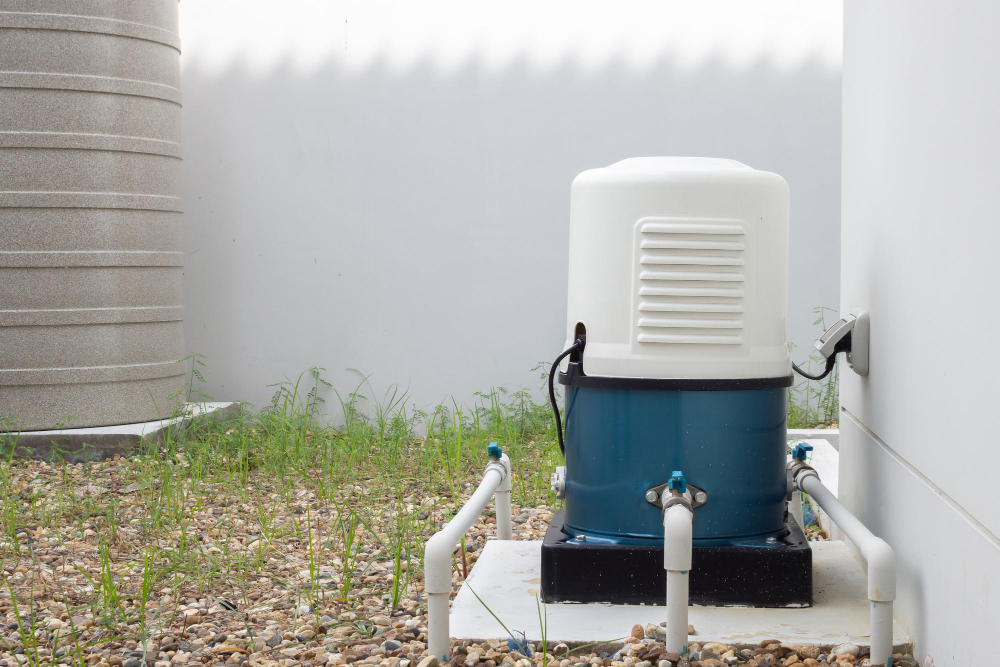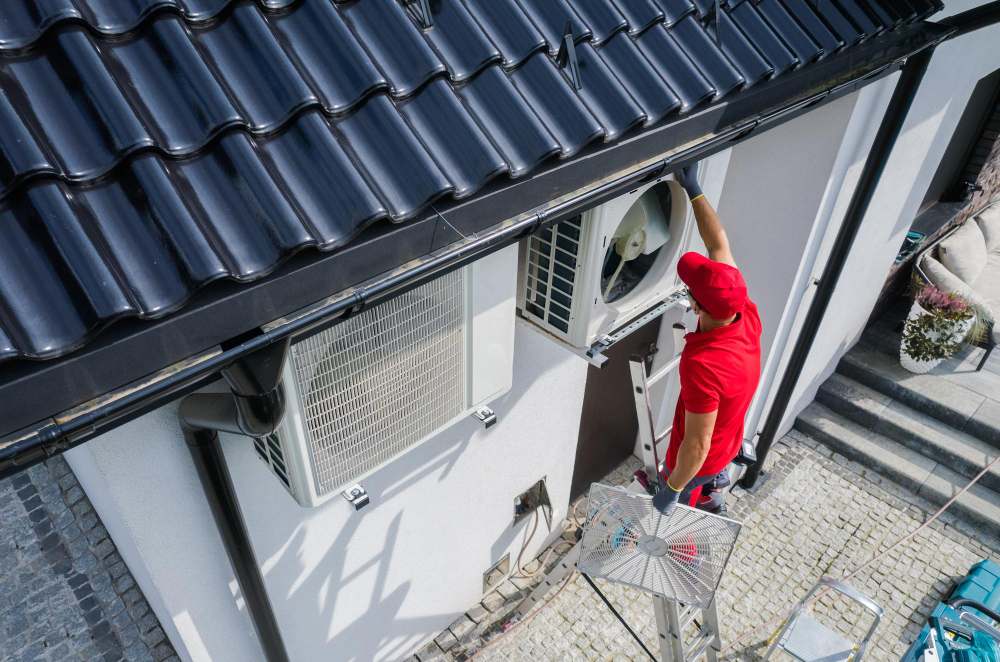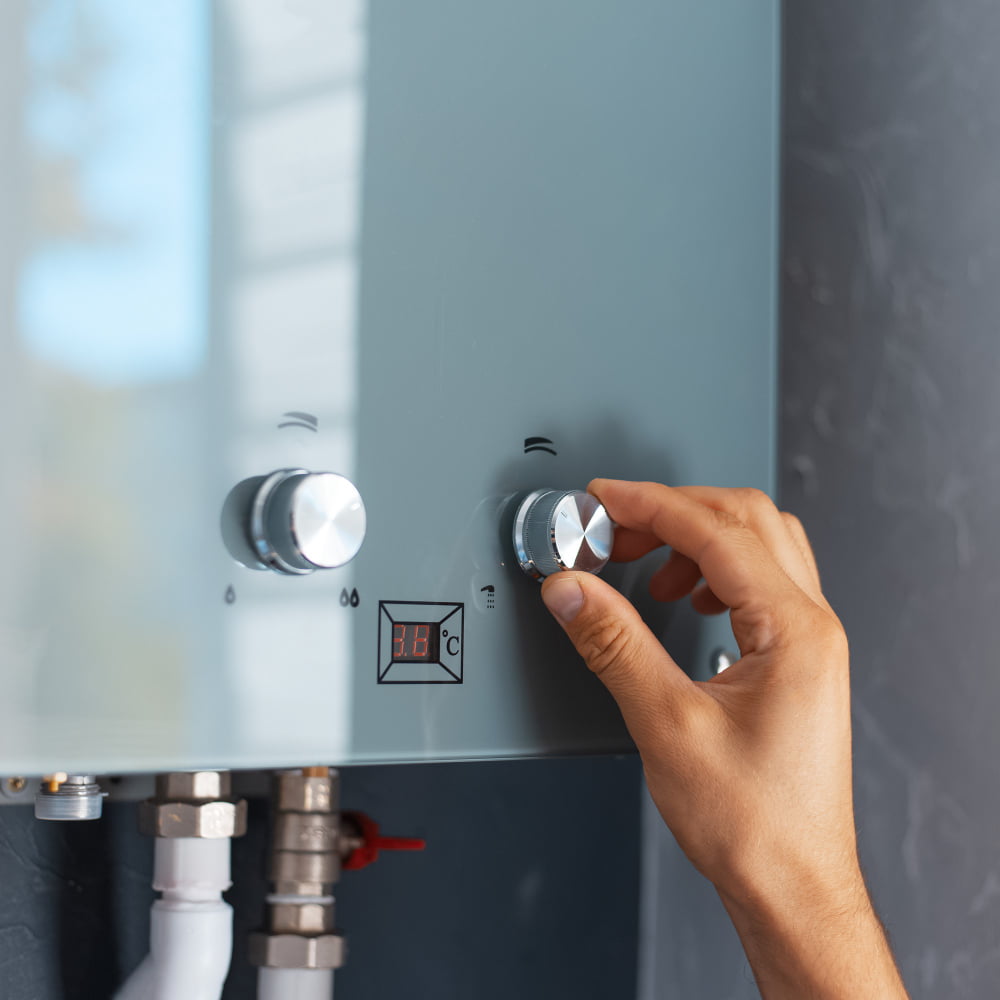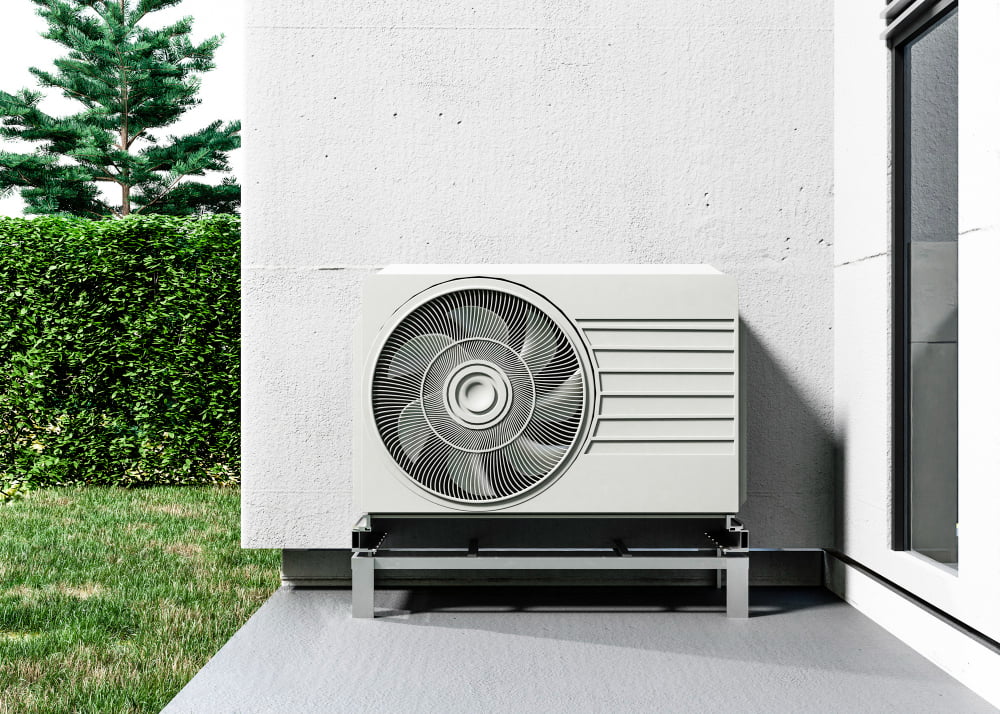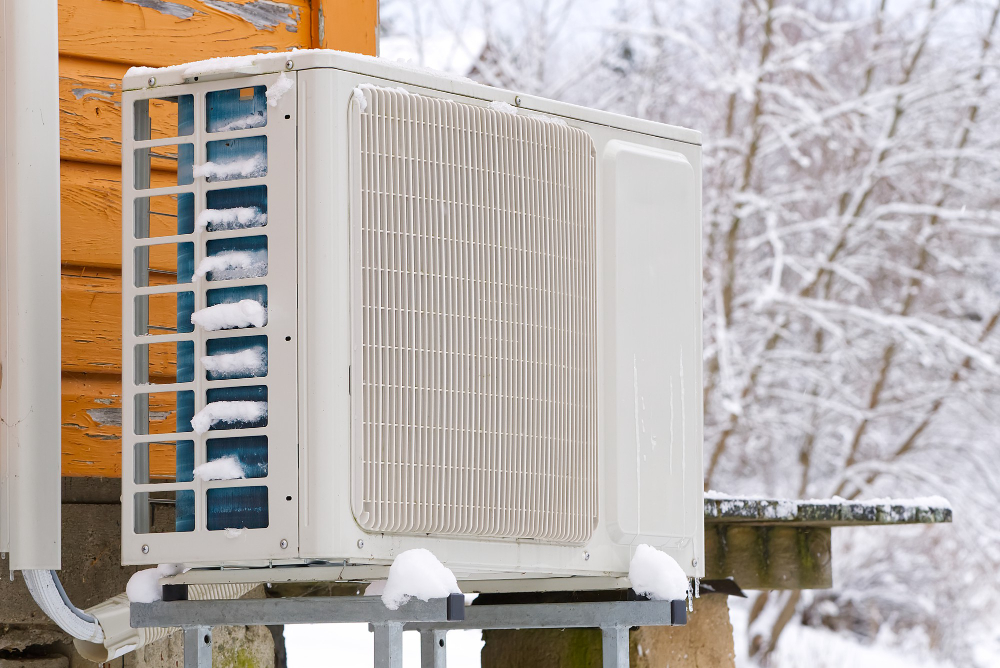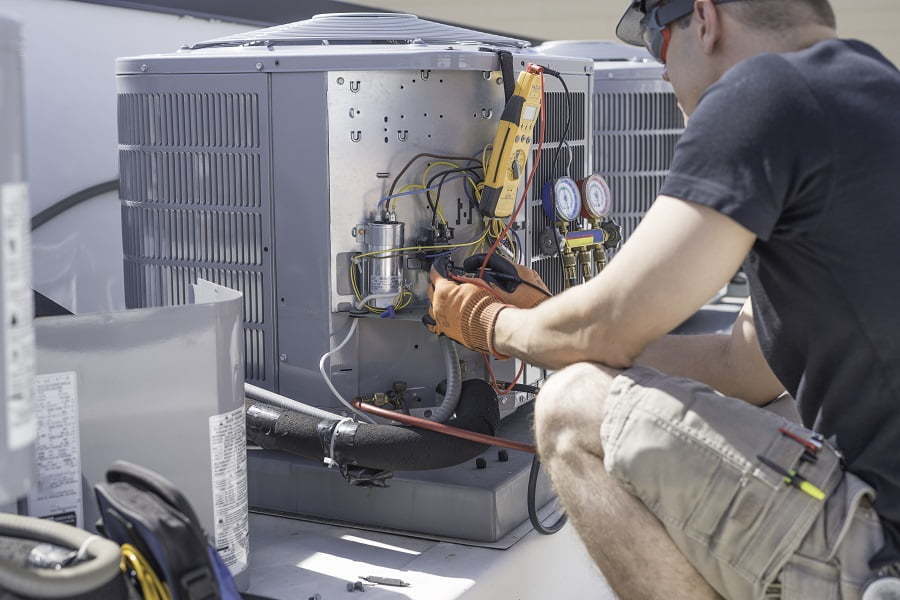Last updated on
A heat pump will work even in very cold weather as long as you choose the right one. Here’s everything you need to know.
As we face a perfect storm of increasing energy prices, there is also increased knowledge and media coverage of the impact of global warming, therefore leading homeowners to consider different sources of energy when upgrading their heating systems.
Heat pumps are increasing in popularity due to their eco-friendly benefits, however, they do also receive very mixed reviews regarding their effectiveness and reliability.
During this article we will be exploring how heat pumps perform in very cold weather, however, firstly let’s cover what exactly is a heat pump.
What Are Heat Pumps?

A heat pump is a device that firstly extracts air and then utilizes a compressor and the refrigeration cycle to bring the air to the desired temperature before pumping it around the system. Heat pumps can be used to fuel a property’s central heating or hot water systems, or the system can be used in reverse in order to provide air cooling.
There are two types of heat pumps available: ground source heat pumps or air source heat pumps. There are significant differences between ground and air heat sources, one example is simply the installation price, ground source heat pumps are considerably more expensive than air heat pumps.
Exact installation prices will however vary depending on the size of the heat pump system needed for the property size as well as the installation process. Other differences excluding the costs are space requirements, efficiency, and running costs.
We will discuss the differences in further detail throughout this article.
Best Conditions for Heat Pumps
Both types of heat pumps are impacted by environmental conditions and the weather. Generally, moderate climates are most suitable for heat pumps due to:
- The temperature of the external air or ground source air is a medium temperature. If very cold, the device would need to work harder to order to increase the temperature of the air before pumping it around the system. The consequences of the device working harder are reduced efficiency, increased running costs and the risk of further wear and tear.
- The external pipework is exposed and therefore open to the elements which can be affected by the impact of frost. This is more of a risk to air sourced heat pumps as with ground sourced pumps, most of the pipework is buried under ground
In cold climates, heat pumps are often required to be supplemented by another heating system within the property.
This option provides a dual system for the homeowner or habitats allowing for doubling up only during the coldest months of example and protects from any downtime issues where one system is out of order, however, this method would require further expense to install.
Which Type of Heat Pump is Best for Cold Weather?
Ground source heat pumps are thought to perform best in colder climates due to the device and most of the associated pipework being buried underground at a significant depth in order to protect from the worst of the cold and frost and source a more constant temperature of the air.
Temperature underground can usually be kept at a more consistent level, around 50-54 degrees Fahrenheit (10-12 degrees Celsius) all year round, therefore the pump does not have to work harder during the colder months to when there are significant fluctuations of external air temperatures.
How Do Heat Pumps Get Affected by The Cold Weather?
As the temperature plummets outside during cold weather, the output of the heat pump and the capacity of the device are both impacted.
As we have already discussed, air source heat pumps suffer the most as they are exposed to the elements and extract the air from the open environment where the fluctuation in temperature is felt the most.
Air sourced heat pumps are tested in laboratory conditions where the air extracted remains a constant seven degrees Celsius which is not realistic in most real-life cases, and therefore the manufacturer claims of performance may not be reliable.
Therefore, in order to protect from inefficiency, homeowners may choose to back up air source heat pumps by installing another source of heating or hot water system.
A lot of people also make the claim that gas boilers are more reliable than heat pumps in colder weather, here is a very informative heat pump vs gas boiler comparison.
Differences Between Air Source and Ground Source Heat Pumps
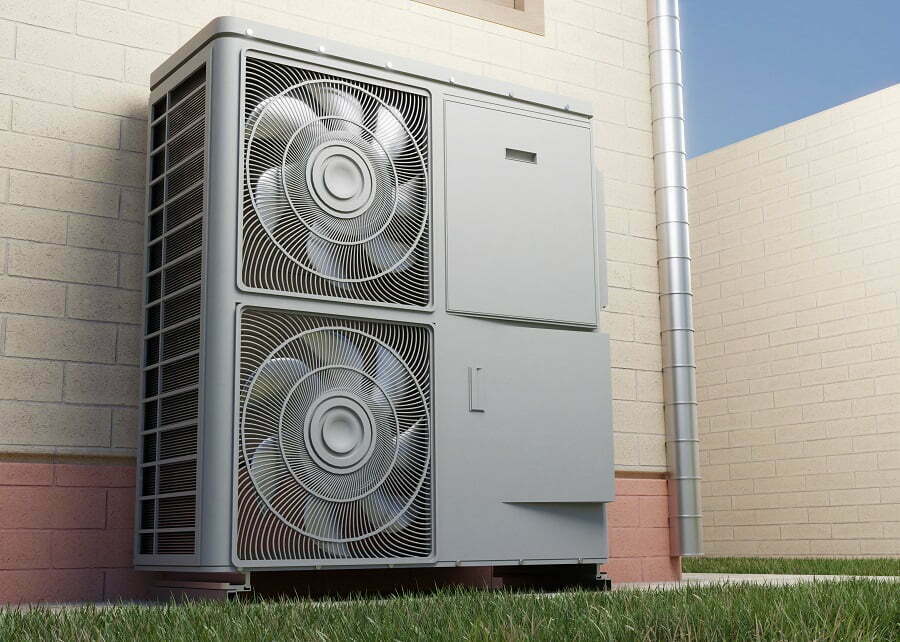
We have briefly mentioned a number of differences between air source and ground source heat pumps.
Advantages of Air Source Heat Pumps
- Air Source heat pumps are generally cheaper for both the unit itself and the installation process.
Disadvantages of Air Source Heat Pumps
- Due to the impact that colder weather has on air source heat pumps, the running costs tend to be higher as more electricity is required to heat the air during cold spells.
- There is no benefit from off-peak electricity tariffs with air source heat pumps as the warmest air to extract is usually during peak times.
- Air source heat pumps have a shorter life span as the parts face more wear and tear as they are exposed to the elements.
- Planning permission is often required as an air source heat pump will be in view and there can be a noise output consideration.
- Some locations may not be suitable for air source heat pumps for example, by the sea due to the increased levels of salt in the air.
Advantages of Ground Source Heat Pumps
- Ground source heat pumps offer better efficiency and performance within colder climates
- Ground source heat pumps receive higher renewable heating incentive payments than air source heat pumps.
- Ground source heat pumps often do not require planning permission.
- The pipework and unit are underground and therefore do not impact the area visually.
- The above ground element is fairly minimise in size and noise output.
- Ground source heat pumps have a longer life span as the system is protected from the elements.
- Off-peak electricity tariffs can be used as the ground air tends to be more consistent.
Disadvantages of Ground Source Heat Pumps
- Ground source heat pumps are more expensive than air source units and have a more complex installation process due to immersing the unit and pipework underground.
- Space is required to lay the piping network needed for a ground source heat pump. A survey of the property will be required to ensure that it is suitable for a ground source heat pump system to be installed.
General Advantages of Heat Pumps
No matter which option of a heat pump is selected, there are still advantages of selecting this technology for your heating system including:
- The green credentials
- Government funding maybe available
- Long life span – Heat pumps generally last up to 50 years.
- Low maintenance costs
- Multi-use technology – Heat pumps can be used to heat or cool
- Reduced household energy bills
What Other Green Energy Sources Are There?
If your property is not suitable for either type of heat pump, or you are not ready to switch to a heat pump, there are other environmentally friendly energy sources available as follows:
- Solar Panels
- Wind turbines
- Hydro-electric systems
The Takeaway
We have been exploring the differences between ground source and air source heat pumps, specifically how they fare in cold weather.
There are great advantages to installing a heat pump system into a property, however, there are considerations of whether the property is suitable, the system will provide sufficient power for the household needs, or even if a backup system will also need to be installed, to be analyzed before jumping into the green heating system.
Related reading:
Table of Contents
